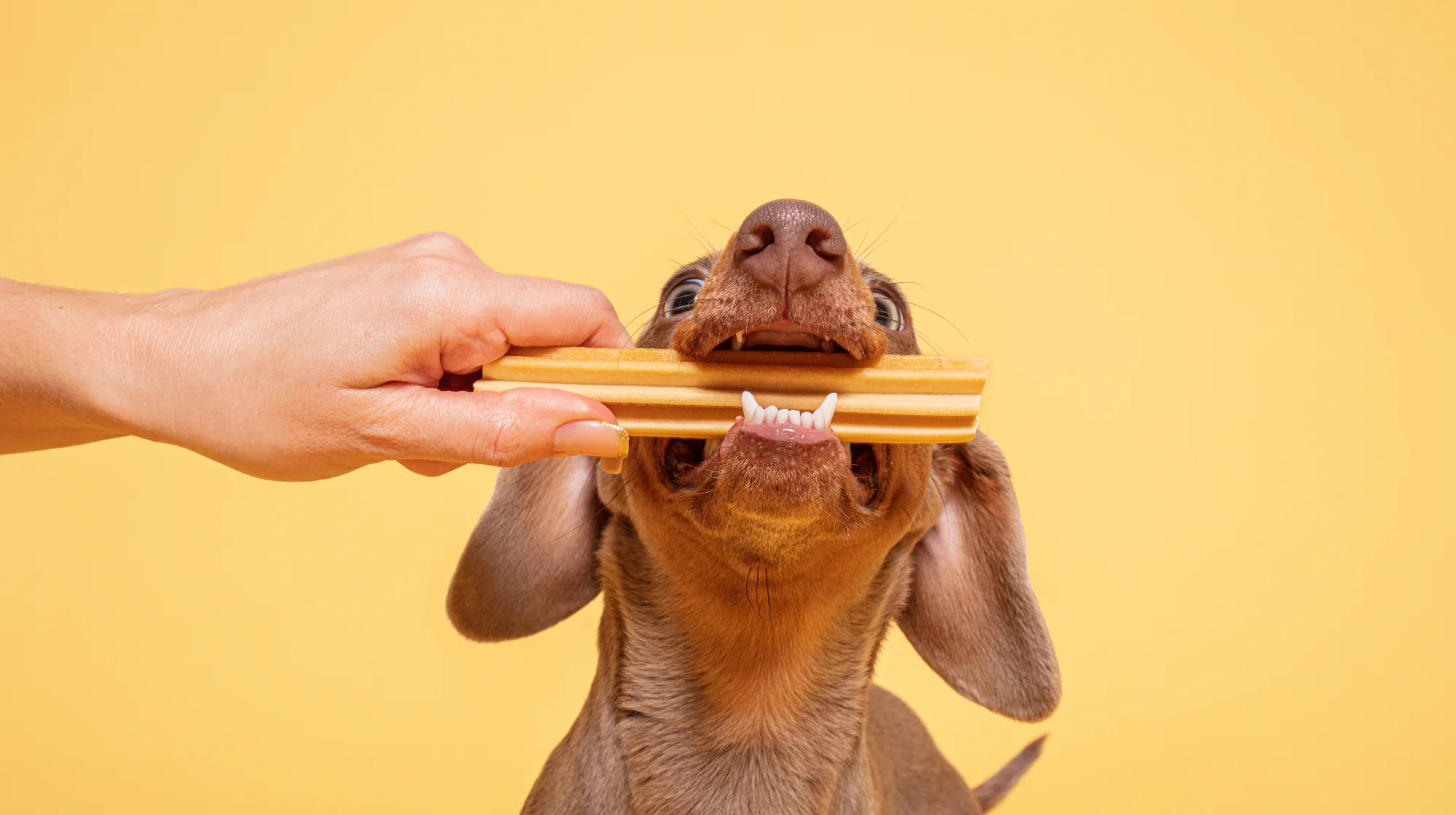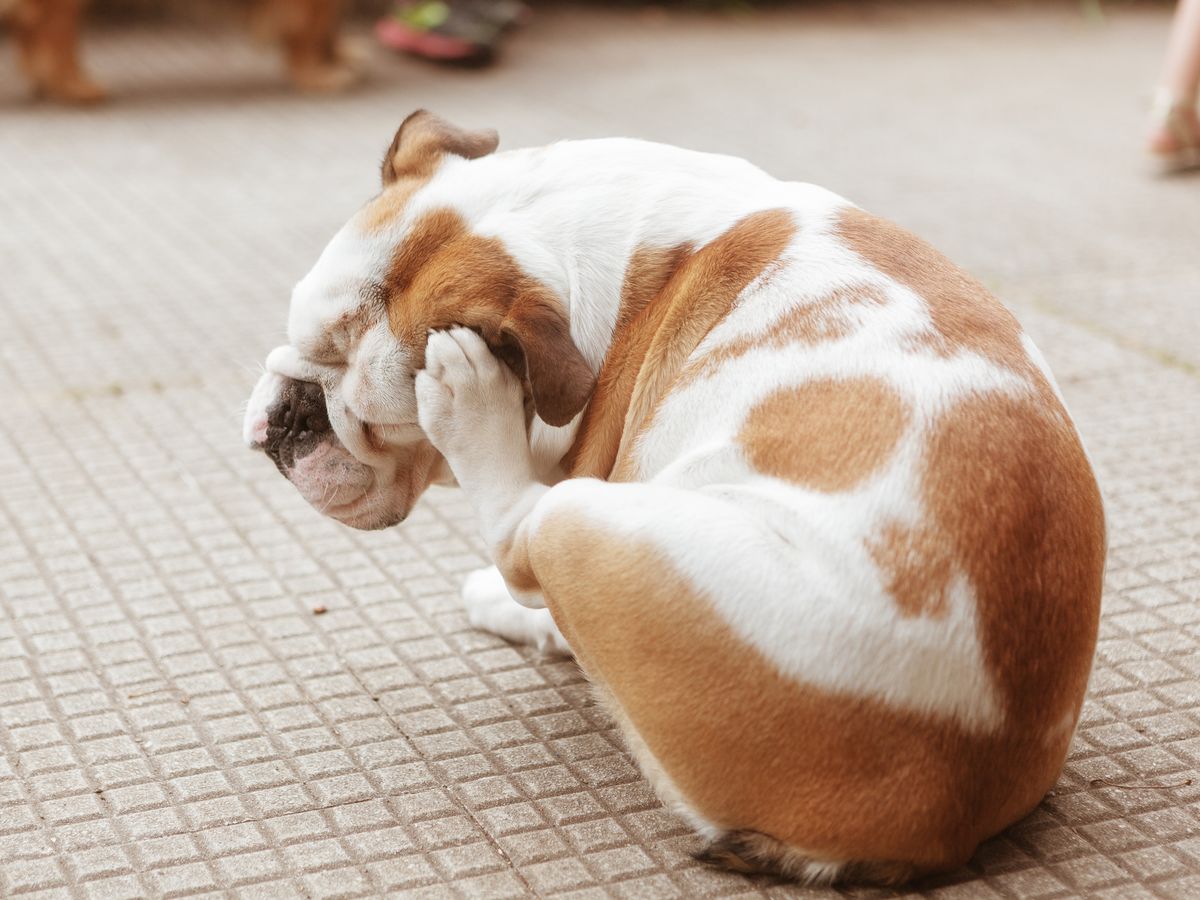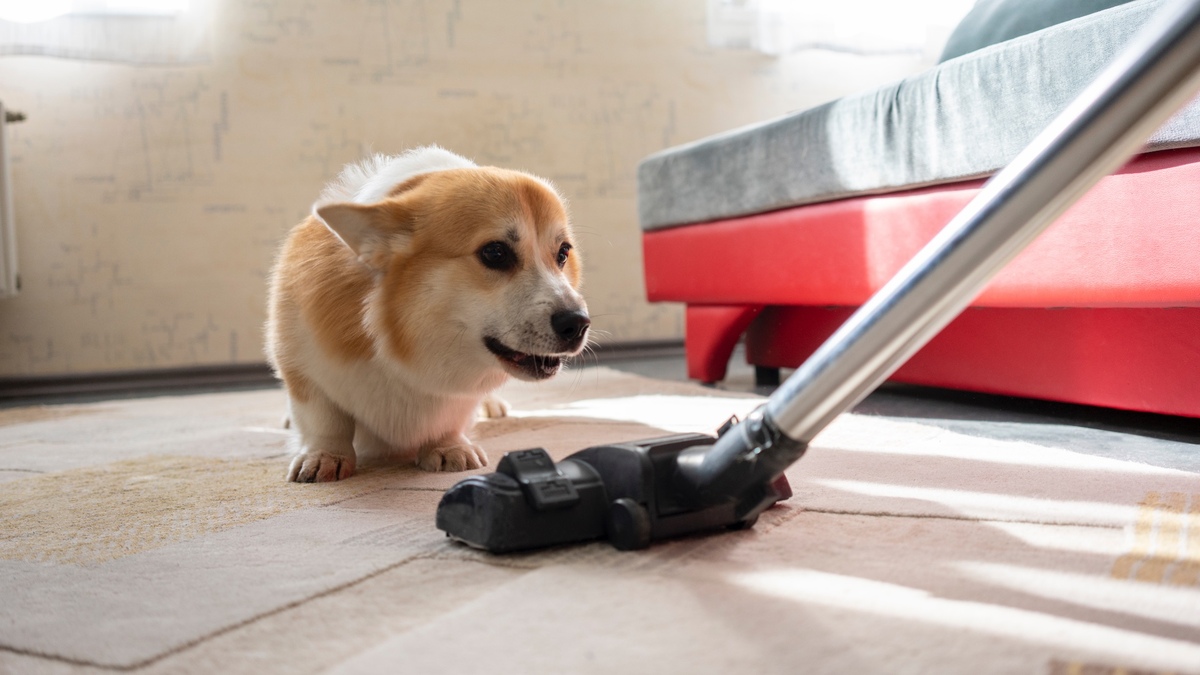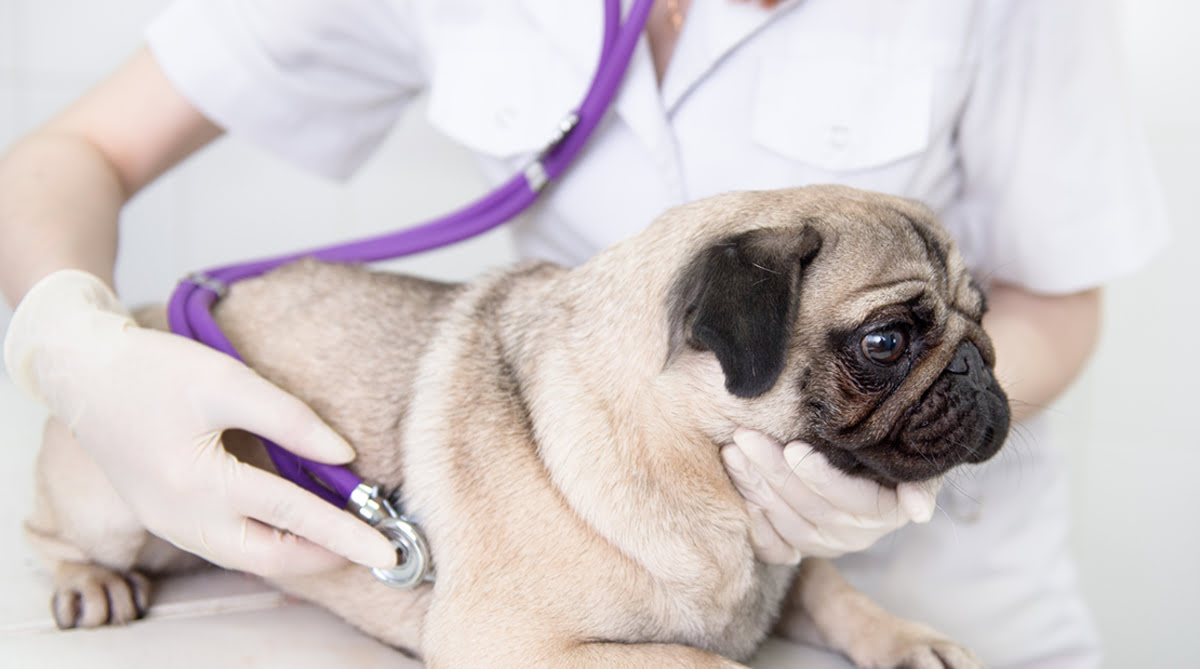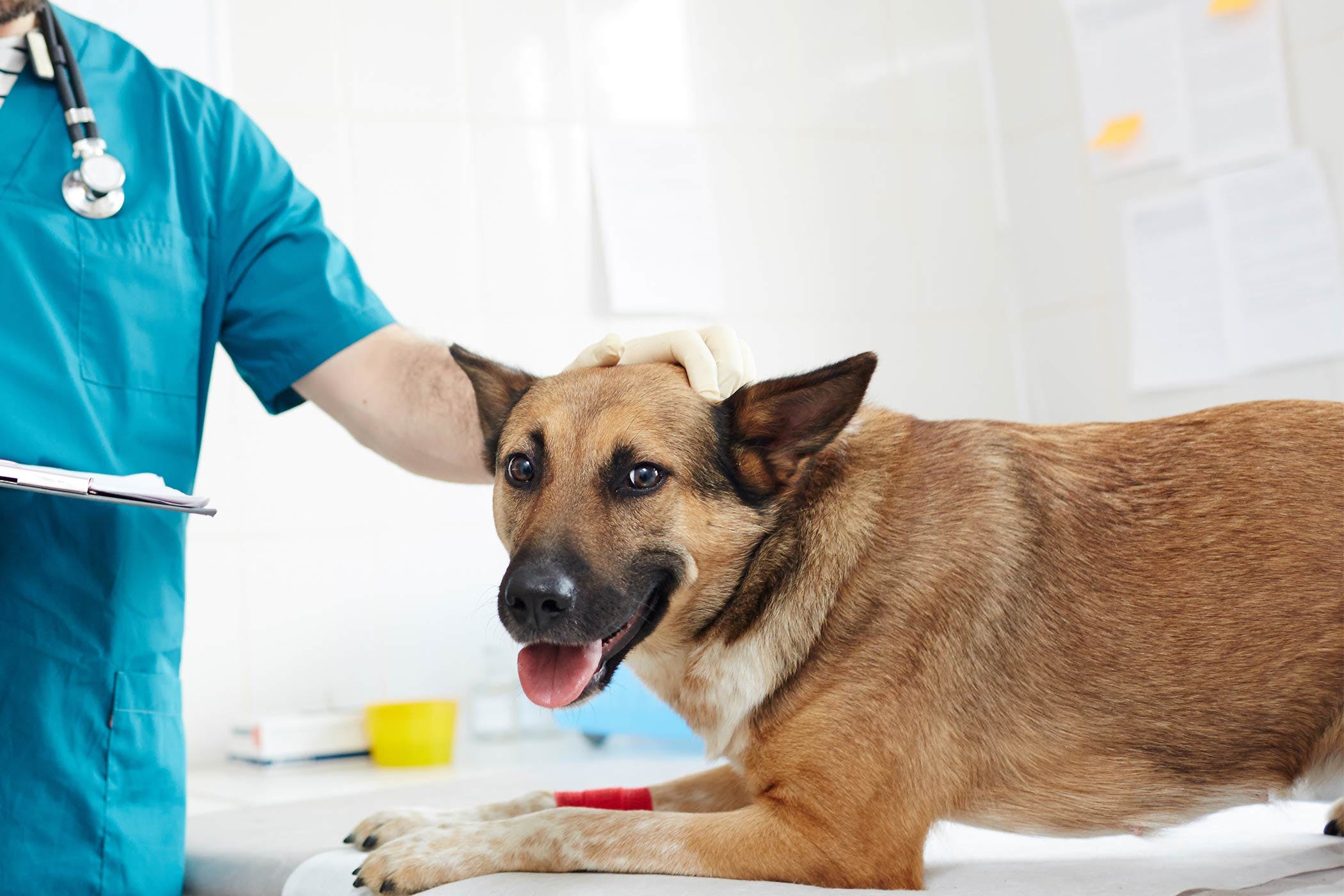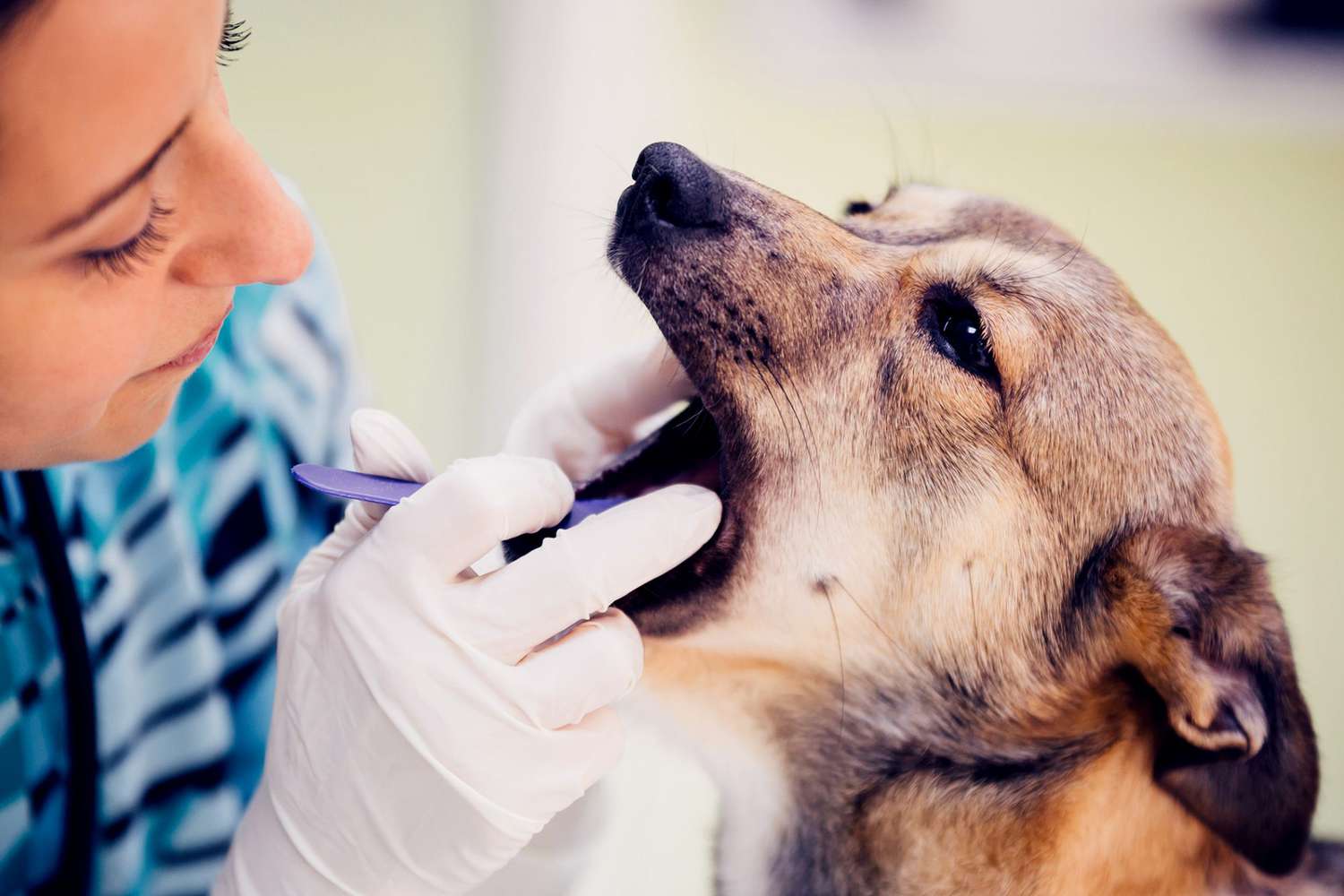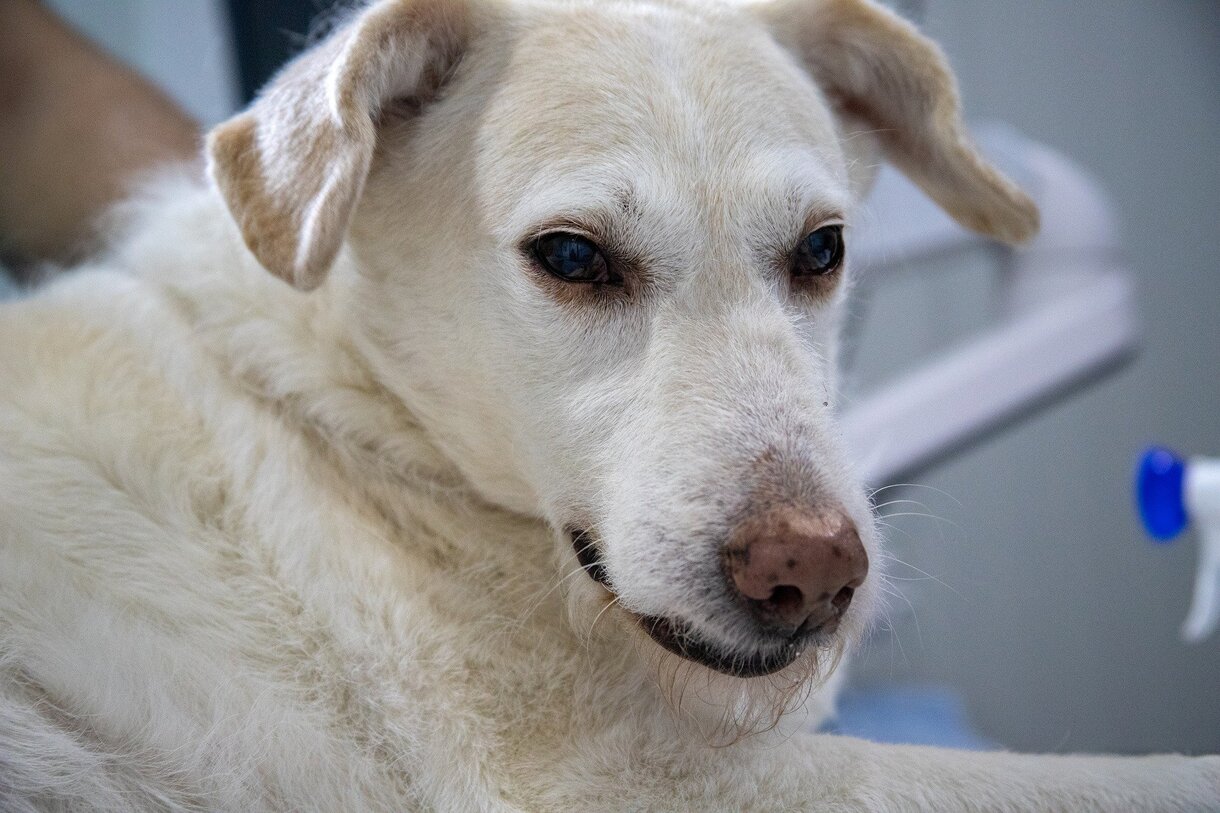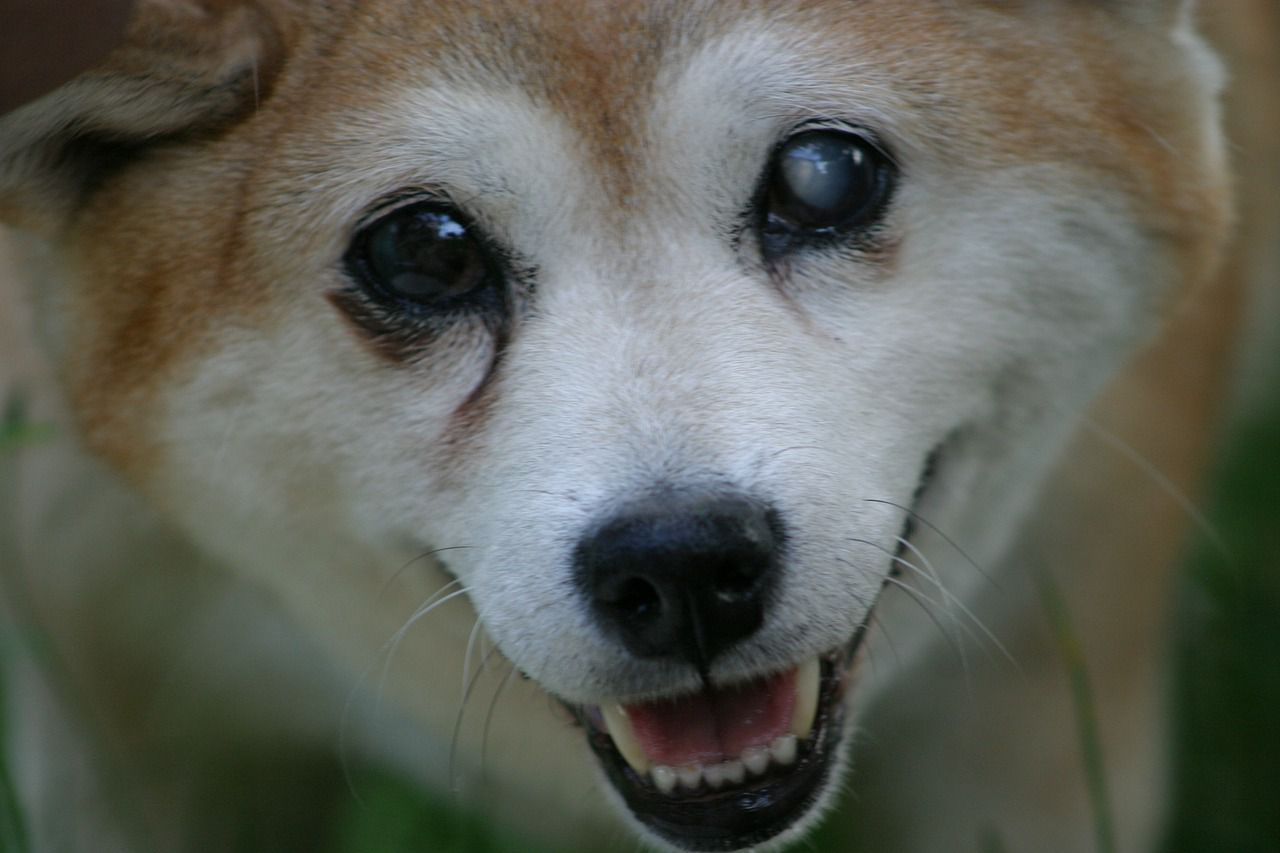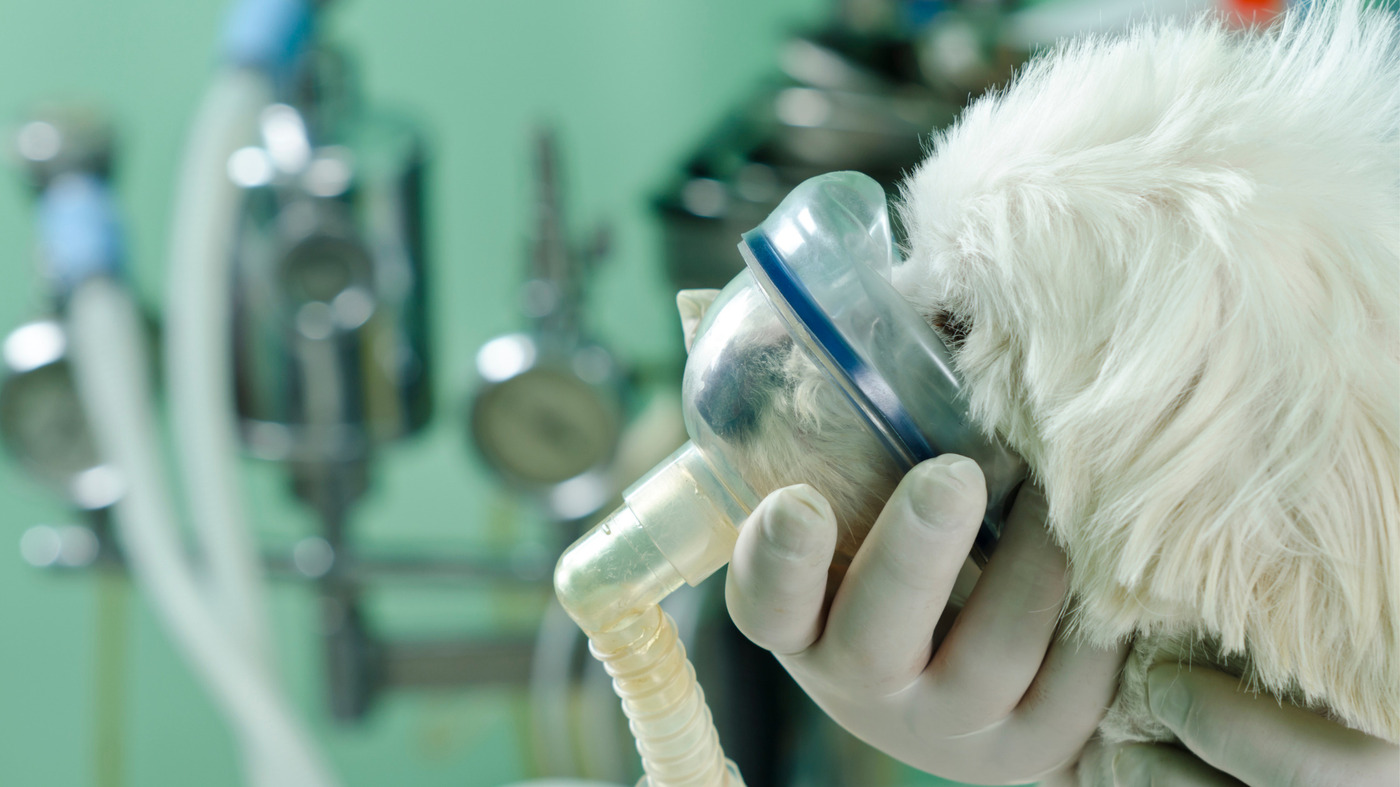Home>Health & Wellness>Common Health Issues>How To Tell If Your Dog Has Dental Problems
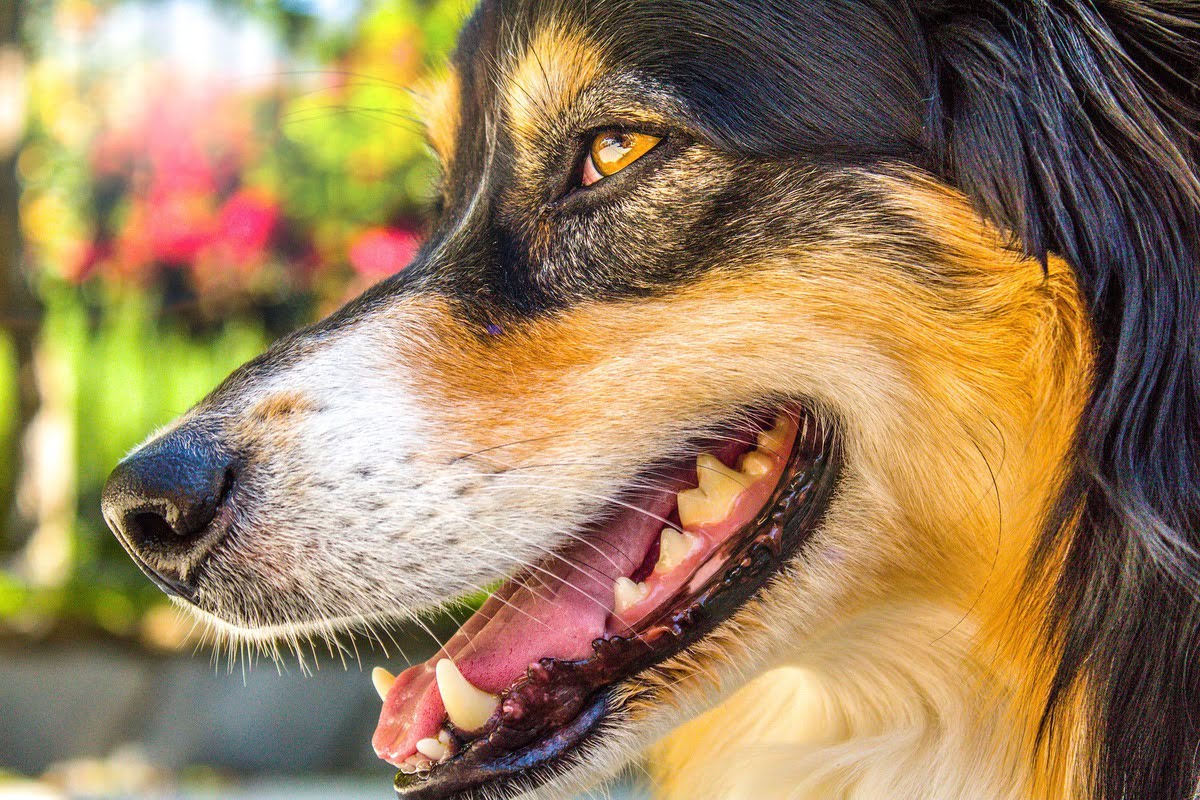

Common Health Issues
How To Tell If Your Dog Has Dental Problems
Modified: February 21, 2024
Learn how to identify common health issues in dogs, including dental problems, and take steps to keep your furry friend healthy and happy.
(Many of the links in this article redirect to a specific reviewed product. Your purchase of these products through affiliate links helps to generate commission for Pawsomeoldies.com, at no extra cost. Learn more)
Table of Contents
Signs of Dental Problems in Dogs
Dental problems in dogs can be quite common, and as a responsible pet owner, it's crucial to be aware of the signs that may indicate oral health issues. By recognizing these signs early on, you can take proactive steps to address your dog's dental concerns and prevent potential complications.
Here are some common signs of dental problems in dogs:
-
Bad Breath: If your dog's breath is consistently foul, it could be a sign of dental issues. While doggy breath is normal to some extent, persistent bad breath may indicate the presence of bacteria and plaque in the mouth.
-
Changes in Eating Habits: Watch out for any changes in your dog's eating behavior. Reluctance to eat, dropping food from the mouth, or favoring one side of the mouth while chewing could signal dental discomfort.
-
Excessive Drooling: While some breeds naturally drool more than others, a sudden increase in drooling could be a sign of dental problems, especially if accompanied by other symptoms.
-
Pawing at the Mouth: If your dog is frequently pawing at their mouth or rubbing their face against surfaces, it may indicate oral pain or irritation.
-
Red or Inflamed Gums: Healthy gums should be pink and firm. If you notice redness, swelling, or bleeding along the gum line, it could be a sign of gum disease or other dental issues.
-
Visible Tartar or Discoloration: Check your dog's teeth for visible tartar buildup, yellowing, or discoloration. These are signs of poor oral hygiene and potential dental problems.
-
Loose or Missing Teeth: Loose teeth or missing teeth in adult dogs are not normal and should be evaluated by a veterinarian.
-
Behavioral Changes: Dogs in pain may exhibit changes in behavior such as irritability, restlessness, or reluctance to be touched around the mouth.
By staying vigilant and observing your dog's behavior and physical cues, you can detect potential dental problems early on. Addressing these issues promptly can help prevent discomfort and more serious health complications down the line. Regular dental check-ups and proper oral care are essential for maintaining your dog's overall well-being.
Read more: How To Tell If Your Senior Dog Has Tumors
Common Dental Issues in Dogs
Dogs, like humans, are susceptible to a range of dental issues that can impact their overall health and well-being. Understanding these common dental problems is crucial for pet owners to provide proper care and seek timely treatment when necessary.
-
Gum Disease: Also known as periodontal disease, gum disease is one of the most prevalent dental issues in dogs. It begins with the accumulation of plaque and tartar on the teeth, leading to inflammation and infection of the gums. If left untreated, gum disease can progress to more severe stages, causing pain, tooth loss, and potential damage to the jawbone.
-
Tooth Decay: While tooth decay is less common in dogs compared to humans, it can still occur, especially in older dogs. Factors such as poor dental hygiene, a diet high in sugar, and certain medical conditions can contribute to tooth decay. Cavities and enamel erosion can lead to discomfort and difficulty eating, impacting the dog's overall health.
-
Bad Breath (Halitosis): Persistent bad breath in dogs is often a sign of underlying dental issues. It is commonly caused by the buildup of bacteria in the mouth, leading to unpleasant odors. While occasional bad breath is normal, chronic halitosis may indicate the presence of dental problems that require attention.
-
Oral Tumors: Dogs can develop tumors in the mouth, including on the gums, tongue, or roof of the mouth. These growths can be benign or malignant and may cause various symptoms such as swelling, bleeding, and difficulty eating. Regular oral examinations by a veterinarian are essential for early detection and appropriate management of oral tumors.
-
Broken or Fractured Teeth: Dogs are known for their love of chewing on hard objects, which can sometimes result in broken or fractured teeth. This can lead to pain, infection, and discomfort while eating. In severe cases, fractured teeth may require extraction or other dental procedures to prevent further complications.
-
Malocclusion: Malocclusion refers to misalignment of the teeth, leading to an improper bite. This can cause issues with chewing, jaw pain, and increased susceptibility to dental problems. Certain breeds are more prone to malocclusion, and corrective measures may be necessary to alleviate discomfort and prevent oral health issues.
Understanding these common dental issues in dogs empowers pet owners to prioritize their dog's oral health. By implementing regular dental care, including brushing, providing dental chews, and scheduling professional cleanings, pet owners can significantly reduce the risk of dental problems and ensure their dog's continued well-being. Regular veterinary check-ups play a crucial role in identifying and addressing dental issues early, promoting a healthy and pain-free smile for our beloved canine companions.
Importance of Dental Care for Dogs
Maintaining proper dental care for dogs is paramount to their overall health and well-being. Just like humans, dogs are susceptible to a variety of dental issues that can cause discomfort, pain, and even systemic health problems if left unaddressed. Understanding the importance of dental care for dogs is essential for pet owners to prioritize their furry companions' oral health.
Proactive dental care not only ensures fresh breath and healthy teeth but also contributes to the dog's overall systemic health. Poor oral hygiene can lead to the accumulation of plaque and tartar, which, if left untreated, can progress to gum disease and periodontal issues. The bacteria associated with these conditions can enter the bloodstream, potentially affecting vital organs such as the heart, liver, and kidneys. Therefore, neglecting dental care for dogs can have far-reaching implications beyond oral discomfort.
Regular dental care can also help prevent the need for costly and invasive dental procedures in the future. By implementing a consistent dental care routine, including brushing the dog's teeth, providing dental chews, and scheduling professional cleanings, pet owners can significantly reduce the risk of dental problems. This proactive approach not only promotes oral health but also minimizes the likelihood of advanced dental issues that may require extensive treatment.
Furthermore, proper dental care can enhance a dog's quality of life. Dental problems can cause pain, difficulty eating, and behavioral changes, impacting the dog's overall well-being and happiness. By prioritizing dental care, pet owners can help their dogs maintain healthy teeth and gums, ensuring that they can enjoy their favorite activities, such as chewing on toys and relishing their meals, without discomfort or limitations.
In summary, the importance of dental care for dogs cannot be overstated. By incorporating regular dental care into a dog's routine, pet owners can safeguard their furry companions from potential oral health issues, systemic complications, and unnecessary discomfort. Prioritizing dental care not only promotes a healthy smile but also contributes to the dog's overall vitality and happiness.
How to Check Your Dog's Teeth for Dental Problems
Regularly inspecting your dog's teeth and oral cavity is a crucial aspect of proactive dental care. By performing routine checks, pet owners can identify potential dental problems early and take appropriate measures to maintain their dog's oral health. Here's a comprehensive guide on how to effectively check your dog's teeth for dental problems:
1. Establish a Comfortable Environment
Choose a calm and quiet setting where your dog feels relaxed. This can be a familiar spot in your home where your dog feels at ease and comfortable being handled.
2. Gentle Introduction
Start by gently petting and reassuring your dog to create a positive and calm atmosphere. This helps alleviate any anxiety or resistance before proceeding with the oral examination.
3. Lift the Lips
Gently lift your dog's lips to expose the teeth and gums. Take note of any unusual odors, discoloration, or visible signs of tartar buildup on the teeth.
4. Examine the Gums
Check the color and texture of the gums. Healthy gums should appear pink and firm. Look for any signs of redness, swelling, or bleeding, which may indicate gum disease or other oral health issues.
5. Assess the Teeth
Inspect the teeth for any abnormalities such as broken or fractured teeth, excessive tartar buildup, or signs of decay. Pay attention to any loose or missing teeth, as these can be indicative of underlying dental problems.
6. Observe Behavioral Cues
While examining your dog's teeth, observe their behavior for any signs of discomfort or pain. Watch for pawing at the mouth, reluctance to eat, or changes in chewing habits, as these may indicate dental issues.
7. Schedule Regular Check-ups
In addition to at-home examinations, schedule regular dental check-ups with a veterinarian. Professional dental cleanings and thorough oral examinations by a veterinary professional are essential for comprehensive dental care.
By incorporating these steps into your routine, you can effectively monitor your dog's oral health and promptly address any potential dental problems. Early detection and proactive dental care play a pivotal role in ensuring your dog's continued oral well-being, contributing to their overall health and happiness.
Tips for Preventing Dental Problems in Dogs
Maintaining good oral hygiene is essential for preventing dental problems in dogs and promoting their overall well-being. By implementing proactive measures and incorporating dental care into your dog's routine, you can significantly reduce the risk of oral health issues. Here are some effective tips for preventing dental problems in dogs:
-
Regular Brushing: Just like humans, dogs benefit from regular teeth brushing. Use a dog-specific toothbrush and toothpaste to gently brush your dog's teeth. Aim for a daily brushing routine to remove plaque and prevent tartar buildup.
-
Dental-Friendly Diet: Choose a diet that supports dental health. Opt for high-quality dog food and dental treats designed to promote oral hygiene. Avoid sugary and sticky treats that can contribute to tooth decay and plaque formation.
-
Dental Chews and Toys: Provide your dog with dental chews and toys designed to promote dental health. Chewing on appropriate items can help reduce plaque, massage the gums, and maintain oral hygiene.
-
Water Additives: Consider using dental water additives that can help reduce plaque and tartar accumulation. These additives are easy to incorporate into your dog's daily routine and can contribute to better oral health.
-
Regular Veterinary Check-ups: Schedule routine dental check-ups with your veterinarian. Professional dental examinations and cleanings are essential for maintaining your dog's oral health. Your veterinarian can identify early signs of dental problems and provide appropriate guidance.
-
Supplements for Oral Health: Explore oral health supplements that can support your dog's dental well-being. Certain supplements contain ingredients that promote gum health and reduce plaque formation.
-
Positive Reinforcement: Make dental care a positive experience for your dog. Use rewards and praise to create a positive association with teeth brushing and oral examinations.
-
Consistent Monitoring: Regularly inspect your dog's teeth and gums for any changes or signs of dental issues. Early detection can lead to timely intervention and prevention of more serious problems.
By incorporating these tips into your dog's care routine, you can actively contribute to their oral health and prevent potential dental problems. Consistent and proactive dental care plays a vital role in ensuring that your dog maintains healthy teeth and gums, promoting their overall well-being and quality of life.
When to See a Vet for Your Dog's Dental Issues
While proactive home care is essential for maintaining your dog's oral health, there are certain circumstances that warrant professional veterinary attention. Knowing when to seek a vet for your dog's dental issues is crucial for addressing potential problems and ensuring your dog's well-being.
-
Persistent Signs of Dental Problems: If you observe persistent signs of dental issues such as bad breath, inflamed gums, visible tartar, or changes in eating habits despite implementing home care measures, it's important to seek veterinary evaluation. These signs may indicate underlying dental problems that require professional assessment and treatment.
-
Pain or Discomfort: Dogs experiencing oral pain or discomfort, as evidenced by pawing at the mouth, reluctance to eat, or behavioral changes, should be evaluated by a veterinarian. Oral pain can significantly impact a dog's quality of life, and prompt intervention is necessary to alleviate discomfort and address the underlying cause.
-
Loose or Missing Teeth: The presence of loose or missing teeth in adult dogs is a cause for concern and should prompt a visit to the vet. These issues may be indicative of advanced dental problems, trauma, or underlying health conditions that require professional attention.
-
Visible Oral Abnormalities: Any visible abnormalities in the oral cavity, including growths, lesions, or unusual discoloration, should be promptly examined by a veterinarian. Oral tumors, cysts, or other abnormalities require professional assessment and potential intervention to ensure proper management.
-
Difficulty Chewing or Swallowing: If your dog experiences difficulty chewing, swallowing, or shows signs of oral discomfort while eating, it's essential to seek veterinary evaluation. These symptoms may indicate dental issues, oral injuries, or other conditions that require professional diagnosis and treatment.
-
Routine Dental Check-ups: Regular dental check-ups with a veterinarian are essential for maintaining your dog's oral health. Professional dental examinations and cleanings can help identify early signs of dental problems, prevent progression to more severe issues, and provide tailored guidance for ongoing home care.
-
Preventive Guidance: Seeking veterinary guidance for preventive dental care is valuable, especially for senior dogs or those with specific dental concerns. Your veterinarian can provide personalized recommendations for oral hygiene, dietary considerations, and potential preventive measures to maintain your dog's dental health.
By recognizing the signs and circumstances that warrant veterinary attention for your dog's dental issues, you can ensure timely intervention and appropriate care. Professional veterinary involvement plays a critical role in addressing dental problems, promoting oral health, and safeguarding your dog's overall well-being.
